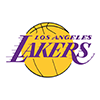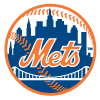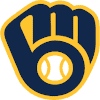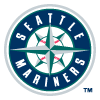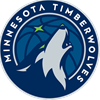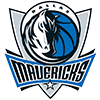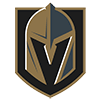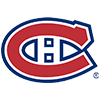In 2009, he was not in the Top 100. In 2010, he was not in the Top 100. But in 2011, he appeared at 16th overall on the Baseball America Top 100 list, cost me $8 in AL Tout Wars to roster, and he nearly won the AL Rookie of the Year Award. That was the prospect track of Seattle's Michael Pineda coming into this past season. Relying on a Top-100 prospect list at the draft table is an easy thing to do, but it's far from a fail-safe way of approaching that part of your fantasy draft for a variety of reasons.
The Top 100 prospects lists that are out there from various publications are excellent work. Baseball America has done one as far back as I can remember; my colleague at Baseball Prospectus Kevin Goldstein takes it one farther, literally, with his Top 101 each season. The one thing that is lost on many people is that those lists do not care about your fantasy league and are ranking players based on their baseball future and not their fantasy future. There is a difference between real baseball value and fantasy baseball value that we see played out when someone pays $20+ for Juan Pierre's steals, when fans of teams that he plays for would gladly pay $20 to get him out of the lineup. This particularly plays itself out when more closers than starters go for $15+ at the draft table, as Wins Above Replacement (WAR) scores
In 2009, he was not in the Top 100. In 2010, he was not in the Top 100. But in 2011, he appeared at 16th overall on the Baseball America Top 100 list, cost me $8 in AL Tout Wars to roster, and he nearly won the AL Rookie of the Year Award. That was the prospect track of Seattle's Michael Pineda coming into this past season. Relying on a Top-100 prospect list at the draft table is an easy thing to do, but it's far from a fail-safe way of approaching that part of your fantasy draft for a variety of reasons.
The Top 100 prospects lists that are out there from various publications are excellent work. Baseball America has done one as far back as I can remember; my colleague at Baseball Prospectus Kevin Goldstein takes it one farther, literally, with his Top 101 each season. The one thing that is lost on many people is that those lists do not care about your fantasy league and are ranking players based on their baseball future and not their fantasy future. There is a difference between real baseball value and fantasy baseball value that we see played out when someone pays $20+ for Juan Pierre's steals, when fans of teams that he plays for would gladly pay $20 to get him out of the lineup. This particularly plays itself out when more closers than starters go for $15+ at the draft table, as Wins Above Replacement (WAR) scores tell us that even the best closer is not as valuable to a team than a solid third starter.
These Top 100 lists are done in a vacuum and do not consider organizational depth charts. They would rank Yonder Alonso highly in Cincinnati even though Joey Votto was firmly entrenched in his only obvious career path. They'll look at an Alex Torres with the Rays who could be a fifth starter in most rotations in baseball in 2012 but is eighth in line in the Rays' organization and thus more likely to work in middle relief than the rotation, which nullifies any value he would have this season outside of vulturing some wins.
Finally, these lists rarely consider your own idiosyncrasies as a fantasy baseball owner. Are you or are you not the same person that will ask strangers on Twitter whether you should drop Carlos Pena in Week 2 to pick up Lucas Duda? Fantasy baseball can be a very reactionary passion by nature because we can get caught up in the magic of a small sample size (Legend of Sam Fuld, anyone?) while ignoring the big picture and the fact that a fantasy baseball season is a 26-period marathon and not a sprint. Sure, I have Dylan Bundy ranked in my own top 10 list, but if you are a day trader that would trade your own children to secure fantasy gold, taking Bundy makes no sense because you will not own him by the time he makes the major leagues.
I did not start playing standard roto format baseball until 1996, as I spent my high school and collegiate years doing sim leagues with friends and roommates on software titles such as Earl Weaver Baseball and Tony La Russa baseball (software ahead of its time), but my roto league did not start doing any kind of minor league drafting until 2000. My first ever dynasty draft pick was Josh Beckett, not because he was the second overall draft choice in 1999, but because we were from the same high school in Spring, Texas. I would like to think that my drafting skills have greatly improved since then through a process of trial and error, along with studying national research and trends within the leagues in which I play. My own strategies are rather straight-forward:
1. Depth Charts: Know them, learn them, live them and love them. This includes 40-man rosters, because the easiest call up for an organization is to use a lesser player already on the 40-man roster rather than make the extra move to waive someone to clear a spot. Prospects are only as good as their path to the major leagues, so if you are drafting a prospect with the intention of using that player that season, make certain he has a clear path to the major leagues.
2. Super Two rules: Know them, learn then, live them and hate them. The new Collective Bargaining Agreement changed the deadline so now the top 22 percent related to service time each season qualify rather than the top 17 percent. In the past, this has lead to the first round of impactful callups happening just after Memorial Day but the new rule could lead to further delays in this. To understand the impact of this, look no farther than the Rays. Tampa Bay called up David Price in mid-May 2009 and had to go into arbitration discussions with him this offseason, where he stands to make nearly $7M when he would have made less than half that had he not qualified as a Super Two player.
3. Tandem draft: If you are going to target prospects in your draft, take the guy that the prospect will be replacing upon promotion. If you are drafting Matt Thornton, get Addison Reed. If you want Nolan Arenado, get Casey Blake. Do not, under any circumstances, draft Jeff Mathis if you want to get Travis d'Arnaud. This assures that you get the entire talent stream for that team and does not suddenly create a roster hole for you when your $5 corner infielder loses his job. Yes, it is as annoying as having to draft fantasy football handcuffs at running back, but it is a cautious play that offers some security rather than relying on what is on the free agent pile.
4. Know Thyself, Know Thy Competitors: If you are the type of player that gets antsy watching someone sit on your reserve roster, do not draft high school stars coming out of the most recent draft. If that is you, you need to target those players who are projected to be called up this season, even if that means (gasp!) drafting a lower-ranked player. Also, you have to know your competition. If you play in a 12-team league and there are only three guys that take prospects seriously, drafting a Dylan Bundy or Bubba Starling with the hopes of trading them is not smart if your trade market is limited to a few owners. Not everyone likes rookies and prospects, but everyone love players that are getting playing time.
5. TINSTAAPP: There is no such thing as a pitching prospect. The attrition rate of pitching prospects is higher than any other position. For every Josh Beckett, there is a Robbie Beckett who was ranked as the fourth-best pitching prospect in the 1990 Gulf Coast League, while Mariano Rivera went unranked that season. For every Matt Moore, there is a Ryan Anderson. I am not saying do not draft these guys, but do not draft too many of them. If you have two prospects similarly valued and need a tiebreaker, go with the offensive player every time.
I will be running Top 100 lists on the RotoWire website three times this season: March 1, July 1 and October 1 once the seasons are settled. Meanwhile, here are my own top 11 names for you to consider for your fantasy drafts:
1. Bryce Harper (OF, WAS): The fact that Davey Johnson has even hinted about Harper having a realistic chance of competing for the Opening Day right field job only helps this all-around talent. The only thing holding him back is mere average production against lefties.
2. Mike Trout (OF, LAA): This is a great example of depth chart issues. The Albert Pujols signing made a crowded Angels' depth chart worse, and it is tough to find immediate room for Trout with Vernon Wells, Peter Bourjos, Torii Hunter and Mark Trumbo all looking for at-bats. Otherwise, Trout is a fantasy dreamboat.
3. Matt Moore (SP, TB): The Rays removed all doubt of Moore starting the season in Triple-A by giving him his pre-free agency deal just after the winter meetings. He has the potential to be a four-category stud if the Rays' offense can be more consistent at home and give him enough run support in close games.
4. Manny Machado (SS, BAL): You will have to wait a while on this one, but it should be worth it. He played the entire season in Low-A-ball at age 18/19 when most of his peers were still playing shortseason ball. He could be playing Double-A baseball before he turns 20.
5. Julio Teheran (SP, ATL): Atlanta has plenty of starting pitching talent in the organization, and Teheran is at the top of that list. He has the stuff to be at the top of the rotation, but barely has 400 innings of professional baseball experience. He turns 21 this offseason and has already dominated Triple-A and pitched in the majors.
6. Devin Mesoraco (Cincinnati): The Reds cleared up the confusion by trading Yasmani Grandal to the Padres so Mesoraco only has to share time with Ryan Hanigan. Mesoraco brings a lot of offense to a position fantasy players are always looking for help and the ballpark is a nice fit. Two of the last four ROY winners in the NL have been catchers, but it is an uphill climb due to the added responsibilities of managing a pitching staff.
7. Jesus Montero (C, SEA): He may never catch enough at the big league level to qualify on an annual basis in fantasy leagues, but the bat is for real. You will want it on your fantasy roster, now with the Mariners.
8. Dylan Bundy (SP, BAL): For me to decry pitching prospects and prep prospects earlier in this article and then rank Bundy this high speaks to how talented he is. He's been compared to Josh Beckett on a talent level as both were drafted, so good luck tempering expectations.
9. Shelby Miller (SP, STL): He has pitched nearly 250 innings in the minor leagues and has given up just 11 home runs while striking out 312 batters. The only blemish for him is a late-season suspension for a second violation of Cardinal organization rules.
10. Jake Odorizzi (SP, KC): He does not have the strong upside of the two pitchers in front of him, but appears to have a safer future due to his command of his stuff. In that regard, he reminds me of Jeremy Hellickson, but features a curve rather than a change-up.
11. Brett Jackson (OF, CHC): He went 20/20 with an .869 OPS in the minors last season, which is what he should be able to do in the majors with his skill set. Contact is a problem, as he can collect strikeouts in bunches, but he has a career OBP of .393 in the minors and is on the cusp of a major league job at age 23.
| Rank | Player | ORG | POS |
| 1 | Bryce Harper | WAS | OF |
| 2 | Mike Trout | LAA | OF |
| 3 | Matt Moore | TB | LHP |
| 4 | Manny Machado | BAL | SS |
| 5 | Julio Teheran | ATL | RHP |
| 6 | Devin Mesoraco | CIN | C |
| 7 | Jesus Montero | SEA | C |
| 8 | Dylan Bundy | BAL | RHP |
| 9 | Shelby Miller | STL | RHP |
| 10 | Jake Odorizzi | KC | RHP |
| 11 | Brett Jackson | CHC | OF |
| 12 | Jurickson Profar | TEX | SS |
| 13 | Jameson Taillon | PIT | RHP |
| 14 | Anthony Rendon | WAS | 3B |
| 15 | Danny Hultzen | SEA | LHP |
| 16 | Manny Banuelos | NYY | LHP |
| 17 | James Paxton | SEA | LHP |
| 18 | Wil Myers | KC | OF |
| 19 | Trevor Bauer | ARI | RHP |
| 20 | Gerrit Cole | PIT | RHP |
| 21 | Martin Perez | TEX | LHP |
| 22 | Tim Wheeler | COL | OF |
| 23 | Zach Wheeler | NYM | RHP |
| 24 | Randall Delgado | ATL | RHP |
| 25 | Jacob Turner | DET | P |
| 26 | Anthony Gose | TOR | OF |
| 27 | Dellin Betances | NYY | RHP |
| 28 | Arodys Vizcaino | ATL | RHP |
| 29 | Casey Kelly | SD | RHP |
| 30 | Jarred Cosart | HOU | RHP |
| 31 | James Darnell | SD | 3B |
| 32 | Robbie Erlin | SD | LHP |
| 33 | Zach Lee | LAD | RHP |
| 34 | Deck McGuire | TOR | RHP |
| 35 | Trevor May | PHI | RHP |
| 36 | Jedd Gyorko | SD | 3B |
| 37 | Matt Harvey | NYM | RHP |
| 38 | Tyler Skaggs | ARI | LHP |
| 39 | Carlos Martinez | STL | RHP |
| 40 | Nick Franklin | SEA | SS |
| 41 | Taijuan Walker | SEA | P |
| 42 | Hak-Ju Lee | TB | SS |
| 43 | Drew Pomeranz | COL | LHP |
| 44 | Neil Ramirez | TEX | RHP |
| 45 | Jarrod Parker | OAK | RHP |
| 46 | Gary Brown | SF | OF |
| 47 | Nick Castellanos | DET | 3B |
| 48 | Brad Peacock | OAK | RHP |
| 49 | Miguel Sano | MIN | 3B |
| 50 | Billy Hamilton | CIN | 2B |
| 51 | Travis D'Arnaud | TOR | C |
| 52 | Wilin Rosario | COL | C |
| 53 | Yasmani Grandal | SD | C |
| 54 | Joe Wieland | SD | RHP |
| 55 | Wily Peralta | MIL | RHP |
| 56 | Reymond Fuentes | SD | OF |
| 57 | Brandon Guyer | TB | OF |
| 58 | Mike Montgomery | KC | RHP |
| 59 | Anthony Ranaudo | BOS | RHP |
| 60 | Zack Cox | STL | 3B |
| 61 | Matt Adams | STL | 1B |
| 62 | Jaff Decker | SD | OF |
| 63 | Oswaldo Arcia | MIN | OF |
| 64 | Joe Benson | MIN | OF |
| 65 | Nolan Arenado | COL | 3B |
| 66 | Christian Yelich | FLA | OF |
| 67 | Tyler Thornburg | MIL | RHP |
| 68 | Jonathan Schoop | BAL | SS |
| 69 | Sammy Solis | WAS | LHP |
| 70 | Alex Colome | TB | RHP |
| 71 | A.J. Cole | OAK | RHP |
| 72 | Yonder Alonso | SD | 1B |
| 73 | Michael Choice | OAK | OF |
| 74 | Leonys Martin | TEX | OF |
| 75 | Bubba Starling | KC | OF |
| 76 | Ryan Lavarnway | BOS | C |
| 77 | Jonathan Singleton | HOU | 1B |
| 78 | Jean Segura | LAA | SS |
| 79 | Mikie Mahtook | TB | OH |
| 80 | Derek Norris | OAK | C |
| 81 | Jonathan Villar | HOU | SS |
| 82 | Archie Bradley | ARI | RHP |
| 83 | Chris Archer | TB | RHP |
| 84 | Edwar Cabrera | COL | LHP |
| 85 | Tyler Pastornicky | ATL | SS |
| 86 | Christian Colon | KC | SS |
| 87 | Matt Szczur | CHC | OF |
| 88 | Starling Marte | PIT | OF |
| 89 | Jake Marisnick | TOR | OF |
| 90 | Nathan Eovaldi | LAD | RHP |
| 91 | Mike Olt | TEX | 3B |
| 92 | Eric Surkamp | SF | LHP |
| 93 | Matt Dominguez | FLA | 3B |
| 94 | Vince Catricala | SEA | 3B |
| 95 | Corey Dickerson | COL | OF |
| 96 | George Springer | HOU | OF |
| 97 | Bryce Brentz | BOS | OF |
| 98 | Alex Torres | TB | LHP |
| 99 | Will Middlebrooks | BOS | 3B |
| 100 | Grant Green | OAK | OF |
| 101 | Eddie Rosario | MIN | OF |
Rookie of the Year Candidates for 2012
Last season's Rookie of the Year selections were polar opposites. Craig Kimbrel was a slam dunk choice in the NL that was up for very little debate the way he dominated late innings in Atlanta at a level rarely seen from closers. Conversely, the AL award was up for much debate as Jeremy Hellickson had a lot of qualified company including Michael Pineda, Eric Hosmer, Ivan Nova, and Mark Trumbo. 2012 will be another crowded pack to start the season in the American League as there are plenty of overly qualified candidates for the award while the National League has less star power for the award. The most important step in getting into the race is getting consistent playing time. It also does not hurt for the rookie to play for contending teams as Kimbrel and Hellickson did last season and Buster Posey and Neftali Feliz did the season before that. Or, if you are in the American League, play for Oakland as one of their rookies has won three of the last eight awards. Given the number of youngsters that are likely to make up their roster this season, that could even become four in nine seasons. It is nearly impossible to project every rookie's playing time in January for a magazine, but here are six rookies in each league that should get enough playing time to be considered for the award from each league.
Yu Darvish (Texas): I dislike considering import players as rookies considering the experience they come over with, but the rules say Darvish qualifies and he has the talent to be considered a favorite for this award. There is a reason why the Rangers paid nearly $52M just to negotiate with him.
Jesus Montero (Seattle): Now in position to play every day with the Mariners, Montero moves into a pitcher-friendly environment at Safeco Field that curbs some of the upside he had in a potent Yankees lineup and hitter-friendly home park in New York. Montero's numbers may have been down in 2011, but his perceived value will not be this low again.
Matt Moore (Tampa Bay): Struck out 11 Yankees in his first start. Shut out the Rangers in Game 1 of the ALDS. Ho-hum. His new major league deal should guarantee he doesn't start the season in the minor leagues and he gets to pitch with the best defense in baseball playing behind him. Run support will make or break his candidacy.
Addison Reed (Chicago): There is a good chance that he could have the closer role with the White Sox early in the season and he has the stuff to be very successful in that role all season. After all, this was the guy who would come in to finish off Stephen Strasburg's starts in college and struck out 155 minor league hitters while walking just 20 in 108 innings of minor league work.
Mike Trout (Los Angeles): Playing time is the only issue for the young man. The Angels in the outfield are bloated contracts on the corners and Peter Bourjos with his amazing glovework in center field. Trout could be better than all three of them, but the Angels will have to clear space for him to get the playing time necessary to compete for this award.
Brad Peacock (Oakland): He was one of the key pieces to the Gio Gonzalez deal. He struck out 177 while walking 47 in 147 innings in Washington's farm system before a late-season call-up. Oakland Coliseum is a pitcher's park which will only help him. Run support is going to be a major issue for him, but he should still help with strikeouts and ERA in 2012.
Bryce Harper (Washington): Manager Davey Johnson says they are going to let Harper compete for a starting job and if the Nationals put him on the 25-man roster, it will not be to sit. He does have some issues against left-handed pitching but this is a five-category stud waiting to happen and if he got 500 plate appearances, he would be a lock to win this award this season.
Randall Delgado/Julio Teheran (Atlanta): The Braves are deep in talented young arms, so much so that they have already traded Derek Lowe and are rumored to be moving Jair Jurrjens. Both pitchers pitched on the major league roster before their 22nd birthday but Teheran was the more dominant of the two at the minor league level. See which one earns a starting role and pounce, especially in keeper leagues.
David Carpenter (Houston): His candidacy would hinge upon the Astros giving him the closer role vacated by Mark Melancon's trade to Boston. Houston may not win 65 games in 2012, but someone has to save those games and Carpenter has the stuff to do that job effectively.
Yonder Alonso (San Diego): The good news is that Alonso finally has a clear path to the major leagues. The bad news is that he moves to the worst hitting environment for left-handed hitters in baseball. Petco
Park hates lefties so much it must have been built by Republicans so Alonso could wear out the gaps with doubles, but if you're looking for more than 12-15 home runs in 2012, you are being too optimistic.
Tyler Pastornicky (Atlanta): The free agent shortstop market is not great so the Braves may just give the rookie the job and hope for the best. He has yet to take a swing in the majors and only has 27 games played in Triple-A, but he knows how to get on base and is a very good baserunner. That plate discipline will help as he would likely hit eighth so batting average, steals, and defense will have to carry his candidacy.








